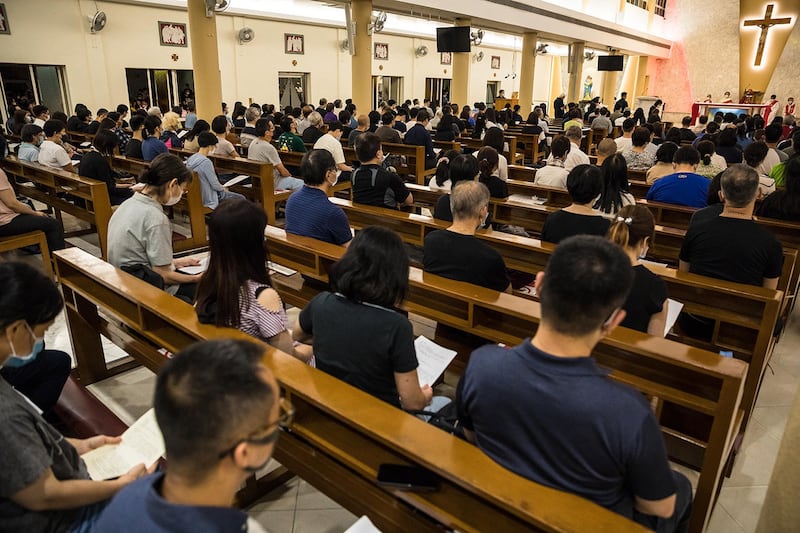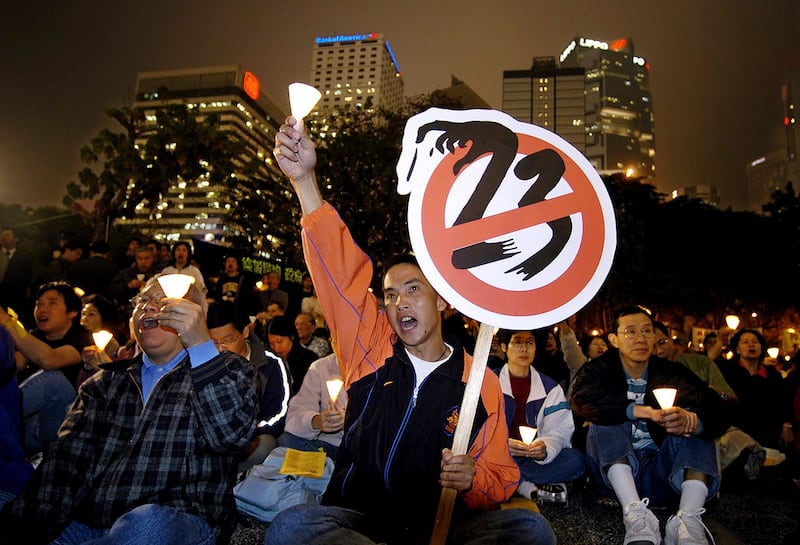The Hong Kong government, poised to pass its stricter “Article 23” national security law next week, blasted criticism of the bill from rights experts who say it will undermine freedom of religion in the city.
The Safeguarding National Security bill, currently before the Legislative Council, includes sentences of up to life imprisonment for treason, insurrection, sabotage and mutiny, and 20 years for espionage. It can punish people 10 years for crimes linked to "state secrets" and "sedition," and allow the passports of anyone who flees overseas to be revoked.
Critics say the ruling Communist Party has a broad and vaguely defined interpretation of many of the crimes in the bill, and that "national security crimes" are already being used to prosecute people for peaceful dissent and political opposition.
Hong Kong Justice Secretary Paul Lam warned last week that anyone who hears that another person has committed "treason" but not reported it could be jailed for up to 14 years, once the law takes effect.
This "has grave implications for the confidentiality of Confession in the Catholic Church and other Christian traditions," according to a letter signed by 16 experts and published by Hong Kong Watch on March 13.
"The new law could force a priest to reveal what has been said in Confession, against his will and conscience and in total violation of the privacy of the individual confession," the group said.

A Hong Kong government spokesman said Hong Kong Watch is an "anti-China organization," and its members were "frontline destabilizing forces."
He said ordinary citizens were in no danger of committing treason, which he defined as "levying war against China, or instigating a foreign country to invade China with force," and called their letter a "blatant, shameless and barbaric intervention."
Advocating for democracy is a crime
Under the "Article 23" legislation, any attempt to push for legislative changes or criticism of the authorities could be regarded as sedition, and any contact with overseas individuals or organizations could be prosecuted as courting foreign interference, the letter said.
Under another clause, "advocating for democracy and the restoration of civil liberties in Hong Kong, anywhere in the world, could now constitute a crime and result in the cancellation of one’s Hong Kong passport," it said.

The new law has been rebooted three decades after being shelved following mass protests against it in 2003 and fast-tracked through the legislature in mere days after Chinese officials said it should be completed "as soon as possible" at the National People's Congress in Beijing last week.
It looks likely to be made law next week.
The experts said that the "vague provisions within the law ... open the potential for politically-motivated prosecutions under illegitimate ‘national security’ grounds," pointing to clauses allowing the extension of detention without charge and the prevention of contact between arrestees and their lawyers.
‘More like mainland China’
Taiwanese national security expert Shih Chien-yu said the legislation will have an indelible impact on Hong Kong, which was once promised the continuation of its traditional rights and freedoms for 50 years after the 1997 handover to Chinese rule.
"The Article 23 legislation basically will make Hong Kong even more like mainland China," Shih told RFA Cantonese. "The penalties are very heavy, mostly more than three years."
Shih predicted that many businesspeople will leave Hong Kong because of it.
Lawmakers completed their detailed review of the bill on Thursday, adding in a strengthened supervisory role for the Committee for Safeguarding National Security, which is itself under the direct supervision of the central government in Beijing.
London-based rights group Amnesty International called on the government to "step back from the brink" and halt the legislation. Hong Kong “is now taking repression to the next level," the group's China Director Sarah Brooks said in a March 8 statement.
"The apparent overarching purpose of Article 23 is to stifle any and all criticism of the Chinese and Hong Kong authorities and their policies, within the city and globally," she said.
Translated with additional reporting by Luisetta Mudie. Edited by Malcolm Foster.
